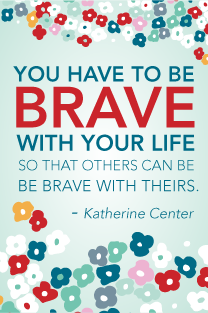I was a terrible writing student. At the beginning of every paper, in nearly every class, through a bachelor's degree and three master's degrees, teachers required a thesis statement and an outline prior to beginning research. I would get stuck there, because I didn't understand how one could research anything with the outcome firmly in mind. If I came across data that contradicted my original thesis, could I change the thesis? And would I recognize the contradictory data if I did? Needless to say, both my teachers and I were often frustrated, and unable to see the other's position.
All human beings have limited perspective: we can never have a God's-eye view of anything. That perspective is the lens through which we view the world. We can learn to change lenses, even modify our particular lens, but we the world we see is always framed by our place and person. Being a "situated knower", as this philosophical problem is called, is both Suchocki's strength and her weakness. It is her greatest strength, because it leads her into concern about the effects of a pluralistic world on Christian ideology. It is also her greatest weakness, at least in Divinity & Diversity, because, like all my frustrated writing teachers, her lens is limited by the thesis she must prove.
Suchocki, like her colleague John Cobb, is one of the great explicators of process theology ["PT"]. Process theology (more on that here) has served to bend and puncture the boxy framework of
modern theology, as well as providing a wholly different understanding of substance (of God, of us, etc.). How does all that happen? By understanding everything and all that is, including God, as an interactive set of what I have elsewhere called "matter-moments" whose action and response is dependent upon other matter-moments' action and response. PT makes God necessarily changeable and changing, at least in part (which is really tough on some people). In PT everything is somewhat interdependent on everything else, including God.
Process theology, like Doug Pagitt's quantum physics, saved my life, and paradoxically made a personal relationship with God possible.
As it happens, I agree with Suchocki's strain of argument : the lens of process theology can help Christians take a different look at our ideology of exclusivity (Jesus as the "only way") because
1) "the image of God is not reducible to ... any individual human quality alone...God is... a complex unity that can only be expressed through irreducible diversity(67)"; and
2) God continually calls us into deeper and richer modes of incarnation.
From here, Suchocki argues that the "deeper and richer modes" of incarnation depend necessarily upon ever increasing depth and breadth of community. This leads her to her main conclusion (the one which "solves" human plurality"): God is calling us to a new and more intense form of mission... not to convert the world to our own religion, but to convert the world toward friendship."(109)
And that's where Suchocki, like all those writing teachers, frustrates me. The first three-quarters of her book, in which she explains PT through the lens of pluralistic culture, is clear, thoughtful, transparent. It should be mandated introductory reading for everyone entering seminary anywhere. (So should Henri Nouwen's Creative Ministry, especially if it replaces The Wounded Healer, which metaphor has by now become a sorry excuse for permanent brokenness. But that's another entry.) But that last quarter, where Suchocki applies PT to global relationships and Christian mission, is utterly clouded by her "situated knower"-ness as a 20th century liberal: her image of Christian faith, of mission, of Jesus himself is so limited that it is rendered a straw man.
In other words, the Christianity she is arguing against is a political effect, not a living faith. It is static and hardened, a cigar-store Indian rather than a creation in which God is and moves and has God's being. It is the mid-century bogieman against which the now-irrelevant ecumenical movement was fighting. The Christianity she portrays is dead or dying: there simply aren't that many churches sending missionaries out to convert the heathen through coercion or force.
More importantly, when Suchocki portrays the new Christian mission as no more than friendship and understanding (even highly relational and rarified friendship and understanding), she reduces the transformative (and essential and unchanging) nature of God's grace, as revealed and incarnated in the person and purpose of Jesus, to simply another tenet of simply another faith and culture. At our best, followers of Jesus are living witnesses to the very process Suchocki argues everything is anyway. Transformative community (of matter-moments or of people) cannot be about "why we believe this or that" (113) or "shar[ing] oneself with another so that the other might know who we really are, and how and why we understand God as we do." (113) By her own sense of PT, transformative community cannot be about "the Methodists [host]ing the Muslims for a church supper"(114) even if it leads to the mutual discovery of and action upon the critical need of their shared geographic community(114).
Godly transformation, the morphing of individuals and communities into the image of God -- into Christlikeness -- is not just about intellectual understanding or shared causes. Godly transfomation is not simply holding hands around the globe. It is beyond global and beyond cellular. It is nothing less than the complete transformation of the very matter and moments of all existence into unity with and incarnation of God. That's what we're about. That's what Suchocki's own process theology is about. But it's not where the book leads us, because retaining the thesis trumped the research and theology.
Which, as writing methodology or Christian ideology, still frustrates me.
Wednesday, April 29, 2009
Subscribe to:
Post Comments (Atom)




No comments:
Post a Comment